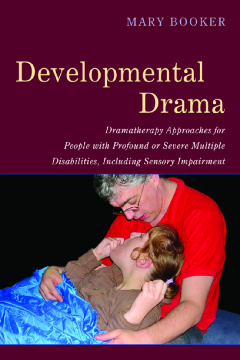
Additional Information
Book Details
Abstract
People living with severe or profound multiple disabilities (PMLD) can often struggle to connect with the world around them. This book shows how, through enjoying dramatic interaction, they can develop their communication skills, learn to deal with emotions more effectively and gain a greater understanding of their physical and social environment.
This guide presents a variety of ways in which drama can be used as a medium for assisting the social and emotional development of people with PMLD, including sensory impairment. It fully explains techniques that are proven to build confidence and promote participation, and illustrates how to include support staff effectively within the process. Charting the author's own journey as a dramatherapist, it clarifies in detail some effective approaches and how to address key issues that arise in dramatherapy practice.
This is an accessible and life-saving guide for practitioners looking to use drama in work with people with PMLD, but are unsure where to begin.
Mary Booker is a dramatherapist with over 25 years of experience working with a wide variety of client groups. She has been involved in the education of dramatherapists for 21 years and is currently the dramatherapy trainer on the University of Worcester's MA in Dramatherapy in Exeter. Alongside this work she has spent 12 years teaching at a school for children and young people with visual impairment and complex needs. She obtained her MEd qualification from the University of Birmingham as a Specialist Multi-Sensory Impairment Teacher.
Her insight into engaging key workers by giving them roles they will consider valuable is not rocket science, but rather another indication of the intuitive nature of Mary's style which is evident throughout the book. She writes from the viewpoint of experience as well as that of social anthropologist whose prime area of research is the human body and its use in communication. Mary is clear that not everything one needs is in the book, but she hopes that she has given the reader encouragement and the practitioner something to work on. I concur she has laid a fine foundation.
British Association of Play Therapy Magazine
